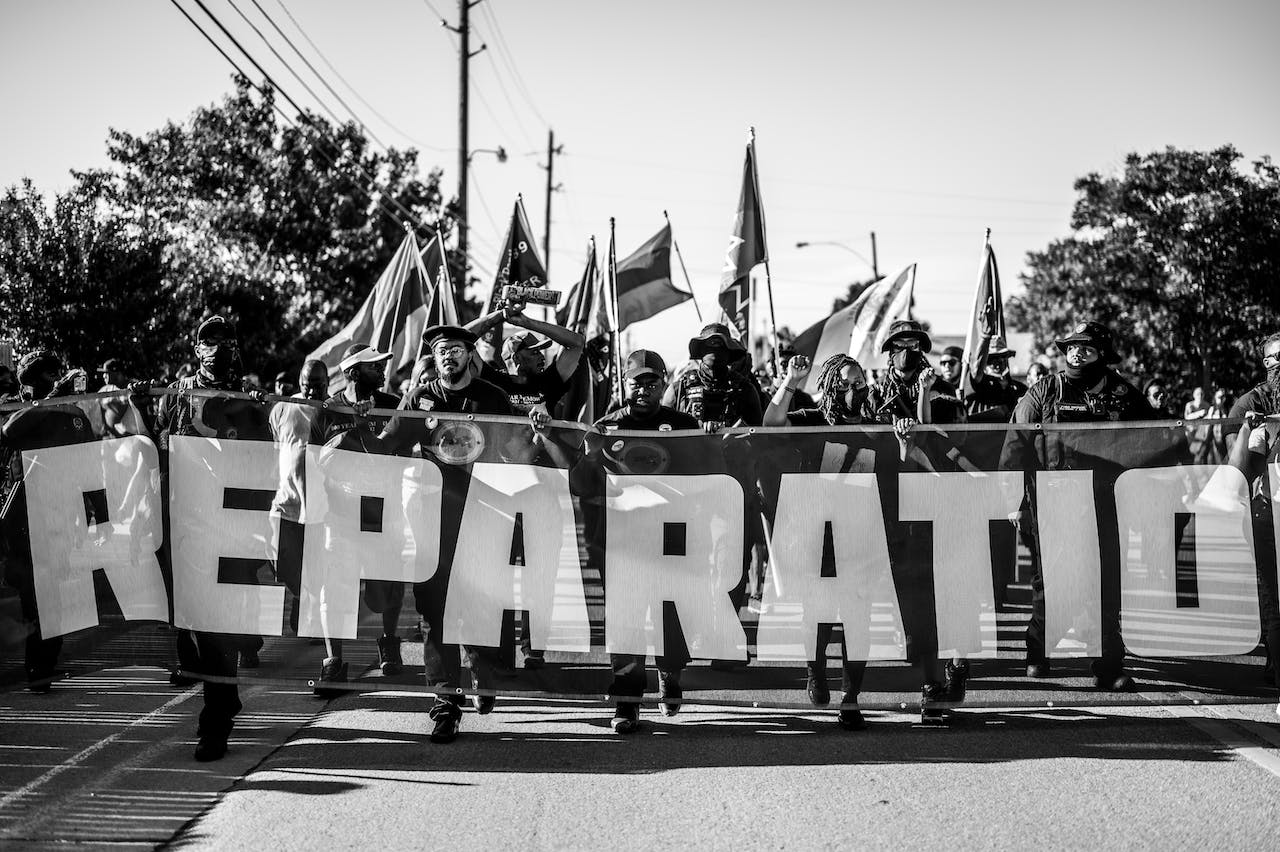
January 28, 2024
Blacks Debate Over Reparations: Pushback, Skepticism, And Calls For Action
Only 14% of Black people in a recent poll believe that there will be action on reparations in our lifetime.
According to a poll conducted in spring 2023 by the Washington Post, only 14% of Black people who responded believe that there will be action on reparations in our lifetime, despite 75% of those same people believing that America has a responsibility to address reparations.
The skepticism seems to be based in the fact that there has been little action taken on reparations. However, some, like Trevor Smith, the head of the Reparations Advocacy Lab, caution that this skepticism may actually be detrimental.
“If Black folks don’t believe that reparations are possible, then no other community, either other people of color or white people, will really get on board with this,” Smith told The Washington Post.
Polling numbers from California express that Asian, Latinos, and whites believe there should be no reparations for Black Americans.
However, Black residents like Aziza Kamara-Amimi want to see action on reparations sooner rather than later. At a meeting about the reparations proposal in California, Kamara-Amimi made it clear that she believes the time for action is now. “We have been talking about this for years, people have been fighting for this for years,” Kamara-Amimi said. “And still all we are doing is talking and talking, and I don’t see any real progress being made. What’s the real solution?”
In San Francisco, there had been a task force set up, which is distinct from efforts from the state, and the task force recommended a broad package of incentives for Black San Franciscans, including $5 million in direct payments to residents of the city. After initially backing the plan, San Francisco Mayor London Breed created a $4 million fund for the program in order to create an office of reparations in the city.
But Breed, who is Black, eliminated the office, citing budget concerns and the program’s place on her list of priorities. Breed also indicated in a statement that she believes reparations is an issue that should be solved by the federal government.
This belief is fairly common among scholars who have long advocated for reparations, scholars like William “Sandy” Darity and A. Kirsten Mullen, authors of From Here To Equality: Reparations for Black Americans in the Twenty-First Century.
Darity, an economist at Duke University, told CNBC that in order to minimize the risk of exacerbated inflation, payments totaling $14 trillion should be spread over 10 years.
Some are still focused on local reparations. In New York, a committee was created for the study of reparations in June 2023 after the state legislature passed a bill. Following six months of sustained political pressure, New York’s Gov. Kathy Hochul signed the bill into law.
In 2023, Rep. Cori Bush (D-MO) introduced HR 414, the first time the United States’ treatment of its Black citizens from enslavement to Jim Crow and beyond entered the congressional record. Bush’s resolution also extended a call for more to be done on the state and local levels.
Bush’s bill as well as one earlier re-introduced by California Democrat Barbara Lee, which calls for establishing a United States Commission on Truth, Racial Healing and Transformation are designed to be companion pieces to HR 40, the Commission to Study and Develop Reparation Proposals for African Americans Act.
HR 40 is an evergreen bill introduced by John Conyers in 1989 and is re-introduced each year. According to ABC News, Bush knew her bill likely wouldn’t get a vote, but said her aim was to build momentum for ongoing reparations attempts across the country.
RELATED CONTENT: NY Representative Jamaal Bowman Backs Bill For $333K Reparations To All Black Americans